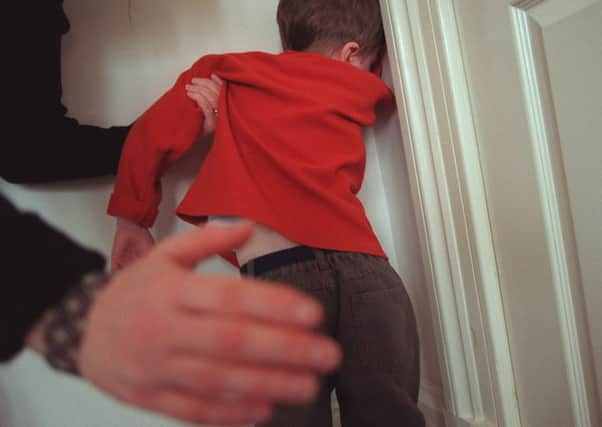Bob McCoskrie: Smacking ban does more harm than good


Based on our experience, I would encourage Scottish parents to ask this question; is the proposed ban on smacking more about political ideology than about any real understanding of how a ban will impact families?
Let’s be clear. In many cases, parental guidance and correction will be non-physical. Time-out, withdrawal of privileges, a telling-off, grounding. However, sometimes a parent may reasonably decide that a smack is the most effective way to correct or prevent unacceptable behaviour.
Advertisement
Hide AdAdvertisement
Hide AdAnti-smacking policies are problematic because they contradict many adults’ own childhood experiences with discipline and their long-term outcomes. Many of us received a well-warranted smack and didn’t think of it as abuse, just as we didn’t think of a good telling-off as a form of abuse.
Sometimes these parenting techniques do become abusive, but that says more about the type of parent than the technique being used. Any parenting technique can be abused.
So what has happened in New Zealand? Our analysis has concluded that there is not a single social indicator relating to the wellbeing of children that has shown significant or sustained improvement since the passing of the law – in fact, they’ve got worse.
Since the passing of the 2007 law, police statistics show there has been a 136 per cent increase in physical abuse, 43 per cent increase in sexual abuse, and a 45 per cent increase in neglect or ill-treatment of children.
But here is my warning to the people of Scotland. There is also evidence that the law is doing more harm than good.
The anti-smacking law has targeted law-abiding parents. An independent legal analysis at the end of 2014 of court cases involving prosecutions for smacking found that statements made by politicians that the smacking ban would not criminalise “good parents” for lightly smacking their children are inconsistent with the legal effect and application of the law. A survey in 2011 – four years after the law was passed – found that almost a third of parents of younger children say that their children have threatened to report them if they were smacked, and almost one in four parents of younger children say that they have less confidence when dealing with unacceptable behaviour.
Two out of three New Zealanders say they would flout the law, and three out of four New Zealanders want the law amended.
The problem is that politicians and anti-smacking lobby groups linked good parents who smacked their children with child abusers – a notion roundly rejected by families.
Advertisement
Hide AdAdvertisement
Hide AdAnti-smacking laws assume that previous generations disciplined their children in a manner that was so harmful that they would now be considered criminals. This undermines the confidence of parents in disciplining their children, fails to understand the special relationship and functioning of families, and has communicated to some children that they are now in the “driving seat”.
Some lead researchers suggest that, despite the best of intentions, the prohibition of all forms of physical correction may inadvertently undermine appropriate parental discipline, with the result that a small but increasing percentage of boys may grow up with a dangerous combination of disrespect for their mothers and a lack of self-control.
The researchers note that critics of anti-smacking laws have been unable to identify alternative methods of discipline that are as effective in reducing child behaviour problems when using the same scientific results used to denounce smacking.
Milder disciplinary tactics may be sufficient for easily managed children, but they are inadequate for controlling the behaviour of young oppositional defiant children.
Ultimately, as we have observed, the supporters of smacking bans are influenced by political ideology rather than common sense, good science and sound policy-making. «
Bob McCoskrie is national director of Family First New Zealand